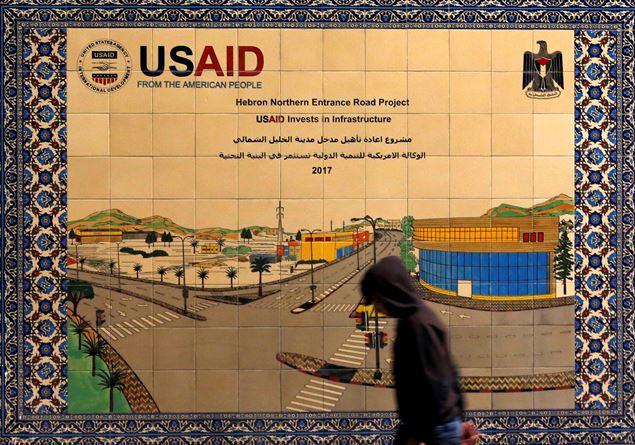
Gautam Adani Charged in US Bribery Case: The Billionaire Under Fire
Indian billionaire Gautam Adani, ranked among the world’s wealthiest individuals and a key figure in India’s business and political landscape, is facing mounting legal challenges. On Wednesday, the United States Department of Justice (DOJ) indicted Adani and several associates, accusing them of orchestrating a $250 million bribery scheme to secure contracts for a major solar power project.
This indictment, which highlights alleged violations of the Foreign Corrupt Practices Act, adds to a growing list of controversies involving Adani and his vast conglomerate, the Adani Group. The allegations not only threaten Adani’s reputation but also have significant financial and political implications for one of India’s most powerful business leaders.
Understanding the Charges
The DOJ alleges that Gautam Adani, along with his nephew Sagar Adani and five other associates, offered $250 million in bribes to Indian government officials to win contracts for a massive solar power plant. The project, which was set to generate profits exceeding $2 billion over 20 years, involved funding from international investors, including those in the United States.
Prosecutors claim that the bribes were documented in electronic records, including emails and photographs. The defendants allegedly destroyed evidence and misled US authorities during meetings to cover up their involvement.
The charges go beyond bribery, extending to obstruction of justice and conspiracy. These accusations, if proven, could have severe consequences for the defendants, potentially leading to extradition requests and a high-profile trial in the US.
Adani Group’s Defense
The Adani Group swiftly denied the allegations, labeling the indictment as “baseless.” In a statement, the conglomerate emphasized its adherence to governance and transparency standards, pledging to pursue all legal remedies.
Despite this defense, the financial fallout was immediate and severe. Adani Group companies lost approximately $28 billion in market value within hours of the announcement. Shares in Adani Green Energy, the company at the center of the scandal, fell sharply, and a $600 million bond sale was canceled, signaling a crisis of confidence among investors.
Who is Gautam Adani?
Gautam Adani is a self-made billionaire who rose from humble beginnings in Gujarat, India. Born in 1962, Adani dropped out of college to start a commodities trading business in 1988. Over the decades, he expanded his business empire into diverse sectors, including infrastructure, energy, ports, airports, and media.
Today, the Adani Group is one of India’s largest business conglomerates, employing over 23,000 people. Its portfolio includes critical assets like Mundra Port, India’s largest private port, and control of several airports. The group also operates controversial projects, such as the Carmichael coal mine in Australia, a frequent target of climate activists.
Adani’s business success is often linked to his close relationship with Indian Prime Minister Narendra Modi. Critics argue that this relationship has provided Adani with political backing and favorable treatment, fueling his meteoric rise.
The Modi Connection
Adani’s proximity to PM Modi has been a subject of scrutiny for years. Both hail from Gujarat, and their careers have progressed in parallel. During Modi’s tenure as Gujarat’s chief minister, Adani acquired land and contracts that critics claim were offered at below-market rates.
Paranjoy Guha Thakurta, a journalist and Adani critic, argues that Adani’s business empire and Modi’s political career are intertwined. “Their rise mirrors each other,” Thakurta says, suggesting that Adani has benefited significantly from his association with Modi.
Opposition parties in India have seized on this connection, accusing Modes of shielding Adani from legal accountability. Congress Party leader Rahul Gandhi recently called for Adani’s arrest, asserting that Modi’s government is protecting him.
The Hindenburg Report: A Precursor to the Scandal
The US indictment follows a January 2023 report by Hindenburg Research, a US-based forensic financial firm, which accused the Adani Group of engaging in stock manipulation and accounting fraud over decades.
The report alleged that:
- Adani Group inflated revenues and stock prices through offshore shell companies in tax havens.
- Some Adani companies carried unsustainable debt, threatening financial stability.
- The group used weak auditing practices, with frequent changes in chief financial officers and questionable oversight.
Following the report, the Adani Group lost over $112 billion in market value, and Gautam Adani’s personal fortune dropped significantly. The conglomerate dismissed the allegations as “selective misinformation” and issued a 413-page rebuttal.
Global backlash
The bribery charges have had ripple effects across the globe. In Kenya, protests erupted over the Adani Group’s planned 30-year lease of Nairobi’s main airport, amid fears of job losses. Following the US indictment, Kenyan President William Ruto canceled the deal.
In Bangladesh, officials are reevaluating a power supply agreement with the Adani Group that has drawn criticism for allegedly prioritizing Adani’s profits over Bangladesh’s interests. The contract was signed under former Prime Minister Sheikh Hasina, a Modi ally, who was signed in August 2024.
Related: 13 Notable CEOs Who Found Themselves in Prison
What’s Next for Adani?
The DOJ indictment marks the beginning of a legal battle that could reshape Adani’s global business dealings. Prosecutors plan to collaborate with foreign governments to execute arrest warrants, but tradition remains uncertain.
Under the US-India extradition treaty, defendants can only be extradited if the charges carry a penalty of more than one year of imprisonment in both countries. Given Adani’s political connections, analysts suggest that the Indian government may resist any attempt to extradite him.
A trial in the US could expose further details about the alleged corruption and potentially implicate others within the Adani Group. However, it remains unclear whether Adani himself would attend such a trial or if he could leverage political influence to avoid legal repercussions.
The Bigger Picture
The Adani case highlights broader issues of corporate governance, political influence, and accountability in India’s business landscape. The billionaire’s rapid rise and continued dominance have often been viewed as emblematic of crony capitalism.
For international investors, the scandal raises questions about the risks of investing in emerging markets with opaque regulatory frameworks. The allegations also underscore the role of the US Foreign Corrupt Practices Act in holding global businesses accountable for unethical practices.
What Analysts Are Saying
Experts believe the case could serve as a turning point for corporate oversight in India. “This is not just about Adani,” says Rick Burton, a professor of sports management who has studied global business governance. “It’s about ensuring that international businesses operate on a level playing field, with accountability for their actions.”
Others warned that the case could strain US-India relations, especially as both nations seek to deepen economic ties. A prolonged legal battle could complicate diplomatic negotiations, particularly if the Indian government resists cooperation.
While Gautam Adani remains innocent until proven guilty, the charges against him mark a significant moment in his career and for India’s corporate sector. Whether the billionaire successfully defends his empire or faces severe consequences, this case will likely have long-lasting implications for global business ethics and India’s economic landscape.






